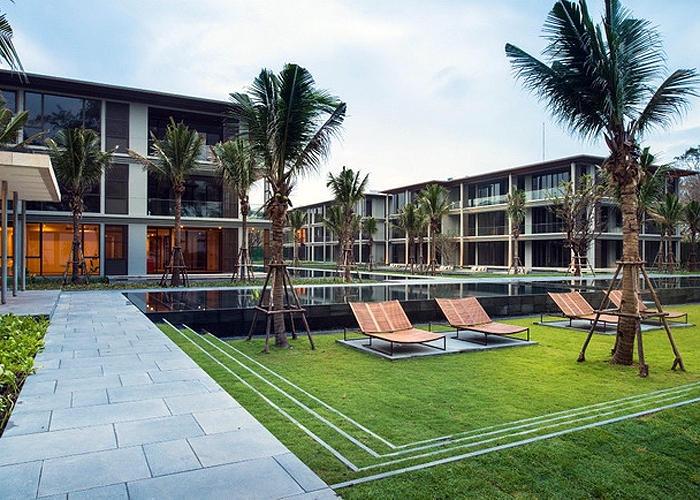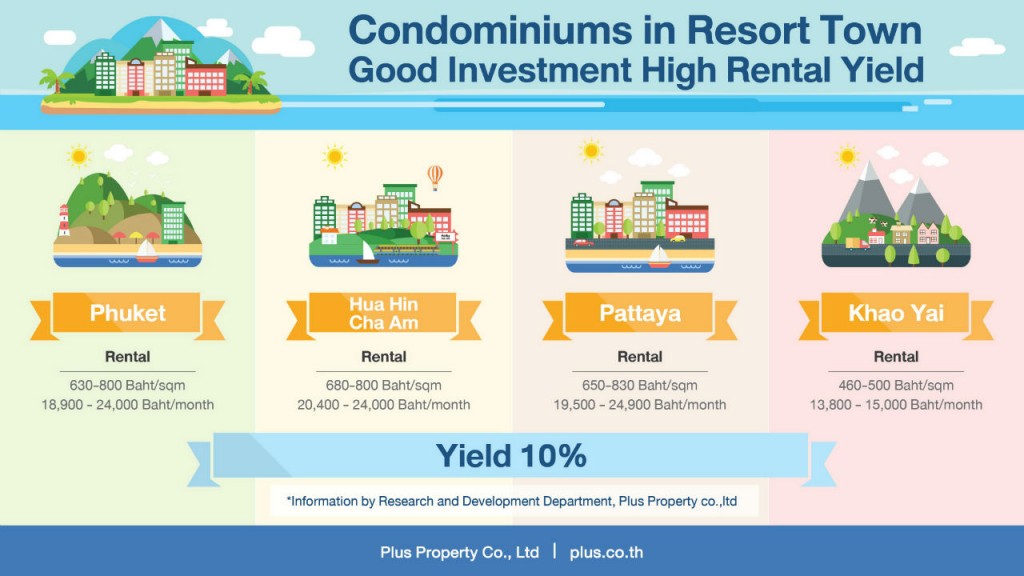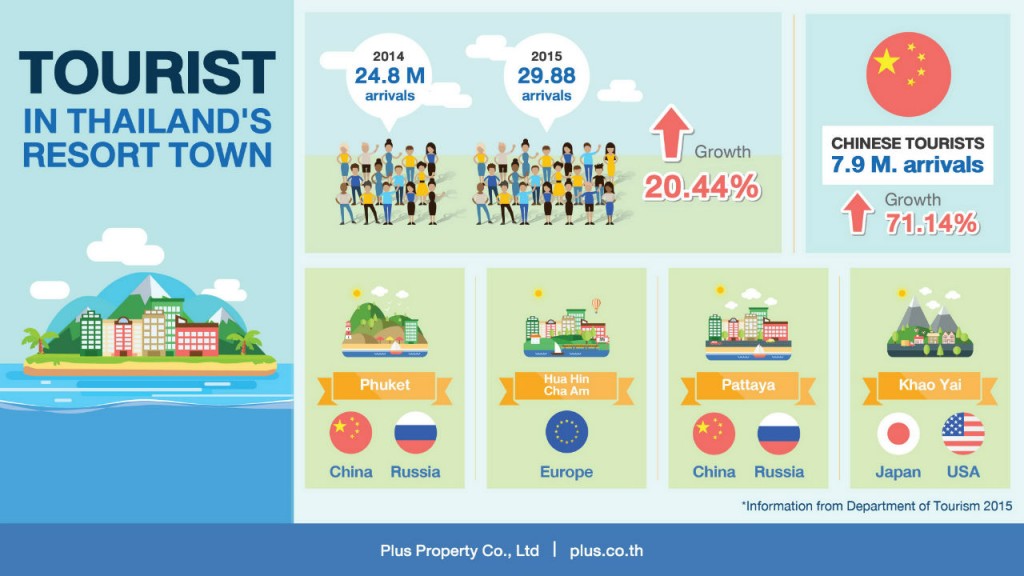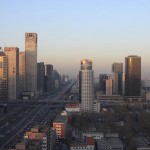As foreign tourists continue to flock to resort towns in Thailand, condominiums in destinations like Pattaya, Phuket, Hua Hin and Cha-am and Khao Yai are becoming more attractive to property investors, according to research from Plus Property. They are now classified as a low-risk asset due to the two-fold benefits, resale profits and yields from rentals, they have.
The number of tourist arrivals in Thailand continues to rise y-o-y despite events like the 2014 coup and 2015 bombing causing some visitors to rethink or cancel plans to travel to the country. At the moment, Plus Property’s research shows that three of Thailand’s biggest beach resort cities currently have strong supply and demand. In Pattaya, the supply of condominium units is now at 38,000 while the demand is at 82 percent and in Hua Hin and Cha-am, the supply is at 7,400 units, with the demand at 73 percent. Supply in Phuket is at 13,000 units and the demand at 68 percent.
Poomipak Julmanichoti, managing director of Plus Property Company Limited, explained in a press release that the government’s stimulus package has helped encourage residential property purchases. Other types of investments and the upcoming cut in deposit protection by the Deposit Protection Agency to THB1 million per bank account has prompted long-term investors to look into property investments. Condominiums are a very appealing investment asset class because the investors can take profits from higher resale prices in the future as well as yields from rentals, which are relatively high at present, Poomipak added.
At the moment, a majority of condominiums in Thailand are in Bangkok where prices for property continue to rise but supply is starting to shrink. However, condominiums in resort towns have gained in popularity due to lower prices compared to those in Bangkok. Plus Property’s research revealed that the average return from rentals are at ten percent per year, provided that the unit is leased throughout the year.
“Condominiums will be in the spotlight in 2016 because of the increasing demand for residences in many segments,” Poomipak explained. “While the condominiums in Bangkok’s central business districts, often purchased for investment purposes, are decreasing in number due to limited availability of land for project development, the condominiums in Thailand’s leading resort towns, including Phuket, Pattaya, Hua Hin and Cha-am and Khao Yai are an attractive alternative for investors and consumers.”
Image: Baan Mai Khao Phuket by Sansiri





